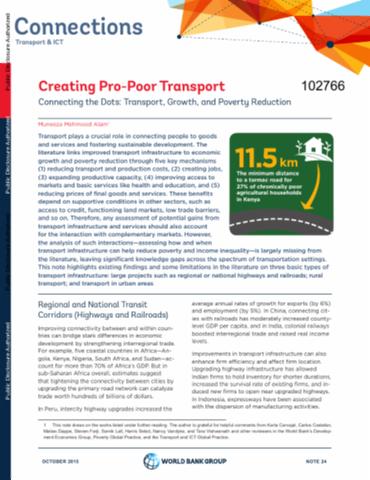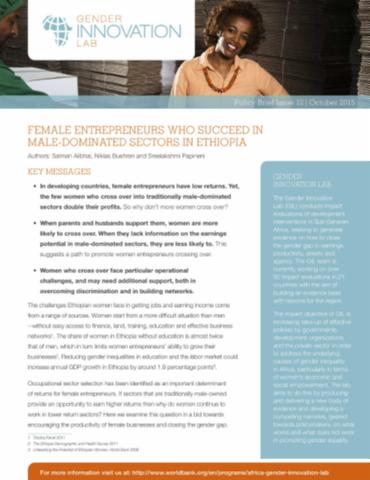The World Bank is a vital source of financial and technical assistance to developing countries around the world. We are not a bank in the ordinary sense but a unique partnership to reduce poverty and support development. The World Bank Group has two ambitious goals: End extreme poverty within a generation and boost shared prosperity.
- To end extreme poverty, the Bank's goal is to decrease the percentage of people living on less than $1.25 a day to no more than 3% by 2030.
- To promote shared prosperity, the goal is to promote income growth of the bottom 40% of the population in each country.
The World Bank Group comprises five institutions managed by their member countries.
The World Bank Group and Land: Working to protect the rights of existing land users and to help secure benefits for smallholder farmers
The World Bank (IBRD and IDA) interacts primarily with governments to increase agricultural productivity, strengthen land tenure policies and improve land governance. More than 90% of the World Bank’s agriculture portfolio focuses on the productivity and access to markets by small holder farmers. Ten percent of our projects focus on the governance of land tenure.
Similarly, investments by the International Finance Corporation (IFC), the World Bank Group’s private sector arm, including those in larger scale enterprises, overwhelmingly support smallholder farmers through improved access to finance, inputs and markets, and as direct suppliers. IFC invests in environmentally and socially sustainable private enterprises in all parts of the value chain (inputs such as irrigation and fertilizers, primary production, processing, transport and storage, traders, and risk management facilities including weather/crop insurance, warehouse financing, etc
For more information, visit the World Bank Group and land and food security (https://www.worldbank.org/en/topic/agriculture/brief/land-and-food-security1
Resources
Displaying 726 - 730 of 4906Creating Pro-Poor Transport
Transport plays a crucial role in connecting people to goods and services and fostering sustainable development. The literature links improved transport infrastructure to economic growth and poverty reduction through five key mechanisms: (1) reducing transport and production costs, (2) creating jobs, (3) expanding productive capacity, (4) improving access to markets and basic services like health and education, and (5) reducing prices of final goods and services.
Female Entrepreneurs Who Succeed in Male-Dominated Sectors in Ethiopia
In developing countries, female entrepreneurs have low returns. Yet, the few women who cross over into traditionally male-dominated sectors double their profits. So why don't more women cross over? When parents and husbands support them, women are more likely to cross over. When they lack information on the earnings potential in male-dominated sectors, they are less likely to. This suggests a path to promote women entrepreneurs crossing over. The challenges Ethiopian women face in getting jobs and earning income come from a range of sources.
Review of Program Design and Beneficiary Profiles of Social Welfare Programs in Mongolia
The report begins with a summary of
programs reviewed, a description of the PMT targeting
system, and the profile of individuals in the database. It
then presents key findings from the review of budgets and
the analysis of SW Admin/PMT data on program coverage and
distributional equity of program benefits. The report
concludes with a discussion of policy implications and
recommendations that emerged from the key findings and the
The Cost of the Gender Gap in Agricultural Productivity in Malawi, Tanzania, and Uganda
Women comprise a large proportion of the agricultural labor force in Sub-Saharan
Financing for Development
The development community is
increasingly accepting the importance of evidence, feedback,
and learning. Some of which is generated through research,
monitoring, and self-evaluation during policy-making,
program design, and implementation. Others come from
feedback from people directly affected by interventions who
have gained a greater voice, be it through third-party
feedback mechanisms, social media, beneficiary surveys, or








